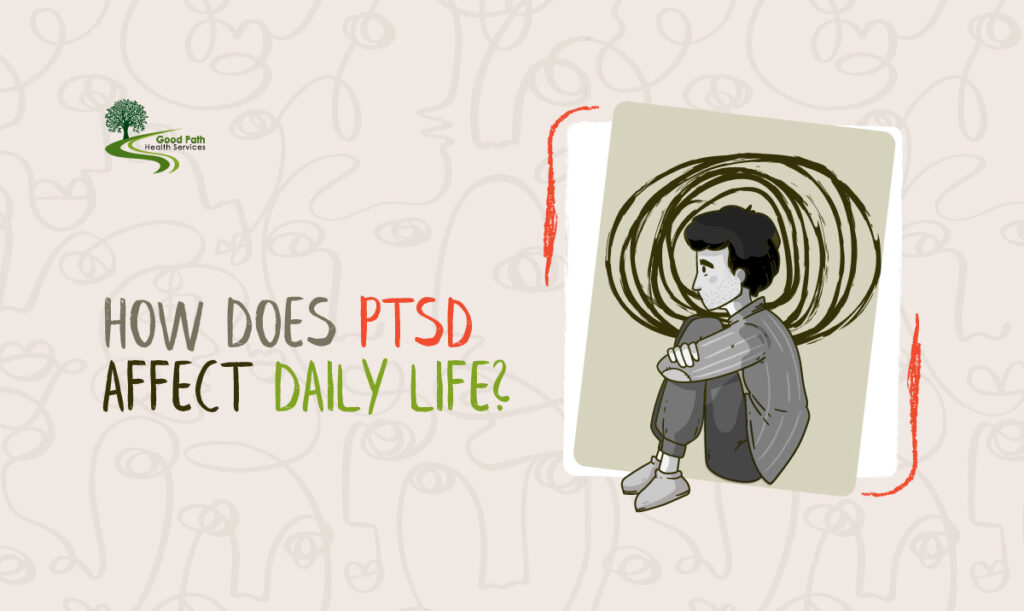
Navigating the spheres of memory lapses and forgetfulness can be a journey fraught with uncertainty.
Mild cognitive impairment (MCI) falls between normal aging and more serious dementia — a threshold that signals the need for understanding and care.
We’re here to walk you through understanding MCI.
This blog post explains the progression of MCI.
We will provide information to those living with the condition, their caregivers, and anyone seeking to understand this delicate topic.
What Is Mild Cognitive Impairment?
The brain can sometimes falter in its responsibilities, leading to what doctors define as mild cognitive impairment.
This condition causes observable changes in cognitive functions, including memory, language, thinking, and judgment.
Nevertheless, these changes aren’t severe enough to meddle severely with daily living and independence.
Symptoms of MCI
- You’re forgetting important information that you would normally remember. These can be appointments, conversations, or recent events.
- You can’t find the right words to say or keep up with the conversation.
- You’re struggling to remain focused on your responsibilities or conversations.
- You’re having issues when it comes to making decisions and you’re unable to understand the effects of your actions.
- You have difficulty comprehending visual information, such as facial recognition and spatial relationships.
- You have a hard time finding your way around familiar places.
- You’re having trouble planning or keeping track of complicated tasks and activities you used to handle.
Causes of MCI
- Age-related cognitive decline.
- Genetic predisposition.
- Neurodegenerative diseases, like Alzheimer’s or Parkinson’s.
- Vascular conditions, like hypertension and stroke.
- Traumatic brain injury.
- Lifestyle choices – unhealthy diet, little exercise, and smoking.
- Psychological conditions, including depression and anxiety.
- Substance abuse, including the use of alcohol and drugs.
- Environmental aspects, such as being exposed to pollutants.
- Medical conditions like diabetes, cholesterol, or thyroid problems.
The Difference Between MCI and Normal Aging
MCI is different from the cognitive impairment that’s usually experienced as a normal part of aging.
MCI patients are at a higher risk of developing Alzheimer’s disease or another type of dementia, although the progression itself is not predictable.
How Fast Does Mild Cognitive Impairment Progress?
To put it simply, the progression of MCI differs from person to person and cannot be predicted.
Some people experience their symptoms worsening within a year, but others remain stable for much longer.
Factors that Can Affect Progression
Several factors—including age, gender, genetic predisposition, and underlying medical conditions—can influence how swiftly cognitive impairment advances, if at all.
In some instances, making healthy decisions by eating a balanced diet, doing regular exercise, and mental stimulation can help slow down cognitive decline.
In the meantime, underlying medical conditions like heart disease might speed things up.
For an idea of the numbers, research shows that about 10-15% of people with MCI can progress to dementia each year.
You shouldn’t take these figures as definite predictions, but rather as general estimates.
Additionally, it’s important to remember that not all MCI cases worsen; some people might get better.
Careful monitoring and regular check-ups with healthcare professionals can make it easier to track the progression of MCI.
It can enable timely care adjustments and treatment.
MCI’s Impact on One’s Daily Life
As MCI progresses, its impact ripples throughout everyday life.
For instance, living with a spouse with mild cognitive impairment can bring several challenges, regarding communication and relationship dynamics.
The progression of MCI could cause issues such as difficulties in:
- Managing finances.
- Remembering names.
- Following conversations.
Initially, they appear minor, but they can compound over time.
Is Mild Cognitive Impairment Considered a Disability?
Those dealing with MCI and their families often have this question.
Even though MCI is not generally seen as a disability, it indicates a decline in cognitive function worthy of attention and support.
Managing Mild Cognitive Impairment
Cognitive services and cognitive consulting are growing fields providing specialized support in managing MCI.
Treatment options attempt to treat both cognitive symptoms and the underlying issues connected to MCI.
Treatment Options
- A person can explore cognitive training exercises or engage in cognitive ease
- Psychological counseling, occupational therapy, and social support can help patients adjust to cognitive changes.
- Meditation and relaxation techniques can help create a supportive environment for cognitive health.
- Simple lifestyle adjustments, like exercising, getting 8 hours of sleep and eating well can also bring cognitive clarity to some.
- Careful and regular tracking of cognitive function helps detect further decline early.
For resources and information, please visit the Mayo Clinic’s MCI guide.
Final Word
How fast does mild cognitive impairment progress?
The rate of progression depends on several factors.
A person’s health, lifestyle, and the severity of their cognitive impairment.
Early detection is necessary in managing MCI.
Not only is this important for improving quality of life, but it could also have an effect on how quickly negative cognitive changes take place.
For both patients and caregivers, including those providing cognitive impairment nursing diagnosis — understanding this progression provides understanding of the connection between neurology, psychology, and social care.
We invite you to reach out for support, be it for advice on managing symptoms, discussing treatment options, or simply for a compassionate ear.
Contact us at Good Path Health Services to schedule a consultative session.
FAQs
How can the progression of mild cognitive impairment be managed or slowed down?
Although there is no definitive cure for MCI, lifestyle habits—like regular exercise, having social connections, and having a good, balanced diet—might help slow its progression.
Cognitive exercises and mental health interventions can also help.
Aricept for mild cognitive impairment – can it be used?
Medications like Aricept (donepezil) are approved for Alzheimer’s disease, but are not specifically FDA-approved for MCI.
How to talk to someone with cognitive impairment?
- Use simple and clear language.
- Be sure to maintain eye contact.
- Be patient.
- Use positive body language.
- Avoid correcting them.
- Give them time to process and respond.
Bipolar disorder and cognitive impairment – is there a connection?
Bipolar disorder can affect cognitive function in many ways.
It can impact memory, attention, executive function, and information-processing speed.
These deficits could be present during episodes.
What are cognitive differences?
Cognitive differences describe the way people process information, learn, remember, and solve problems.
These differences result from several factors, including genes, brain structure and function, educational experiences, and environmental influences.



